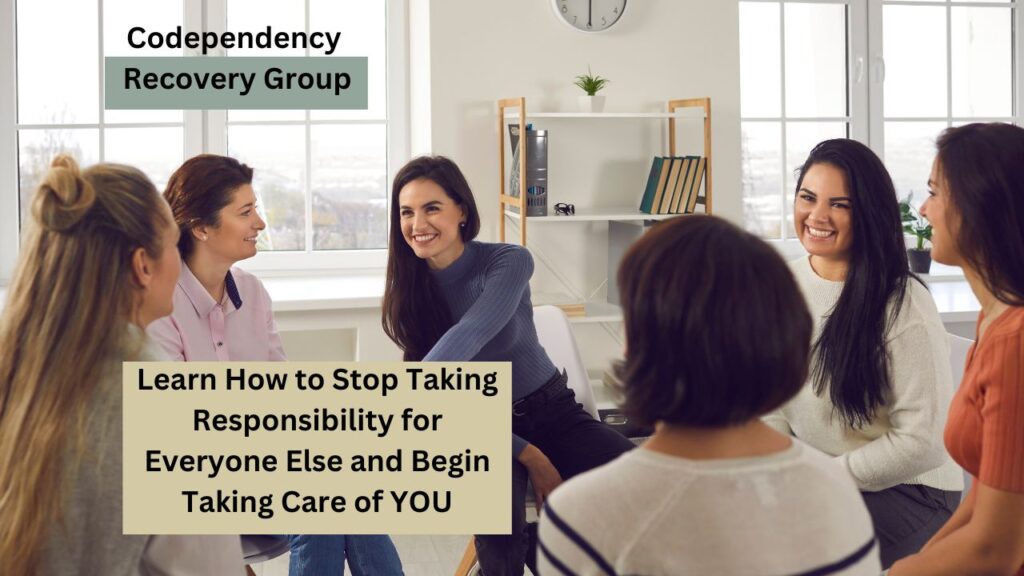This is a common scenario in my counseling office: A woman comes in who is feeling overwhelmed and anxious with her life. She is unhappy in her marriage and feels like she is failing as a mother. As we look at her physical health, there are numerous concerns with weight, exhaustion and hormonal imbalances. She reports to me, “My life feels like it is spinning out of control and dragging me along behind it!” Women aren’t the only ones who are feeling these things, I’ve had men say they feel like they are carrying the weight of the world upon their shoulders. It is natural to want to care for and help the people we love. The problem becomes when we care for others at the cost of neglecting our own health and well-being.
In the late seventies, the word codependency appeared on the treatment scene. This term first began to be used with alcohol and drug treatment. Professionals began to recognize a relational pattern among family members who had an alcoholic in the home. Robert Subby and John Friel in an article from the book Co-Dependency, An Emerging Issue, wrote: “Originally, it was used to describe the person or persons whose lives were affected as a result of their being involved with someone who was chemically dependent. The co-dependent spouse or child of someone who was chemically dependent was seen as having developed a pattern of coping with life that was not healthy, as a reaction to someone else’s drug or alcohol abuse.” As professionals began to understand the dynamics more, they recognized that more groups of people appeared to struggle with this way of relating. Melody Beattie, the author of Codependent No More, lists other groups: adult children of alcoholics; people in relationships with emotionally or mentally disturbed persons; people in relationships with chronically ill people; parents of children with behavior problems; people in relationships with irresponsible people; even professionals- nurses, social workers, and others in “helping” occupations. Although these relationships can vary with many different contributing factors, one common denominator seemed to be consistent and that was the unwritten, silent rules that developed in the immediate family. These rules prohibit discussion about problems; open expression of feelings; direct, honest communication; realistic expectations, such as being human, vulnerable, or imperfect; self-focus; trust in other people and one’s self; playing and having fun; and rocking the delicately balanced family canoe through growth and change- however healthy and beneficial that movement might be.
We know that our broken relationships are the fruit of sin and death in our lives and the world around us. In our attempts to “fix” things, like a child we find that we are in a bigger mess than we started with. Even as we live out our relationship with God, we find ourselves trying to “please” Him. When a religious leader asked Jesus about the greatest commandment, Jesus responded with love.
Love the Lord your God with all your heart and with all your soul and with all your mind. This is the first and greatest commandment. And the second is like it: Love your neighbor as yourself. (Matthew 22:37-39, NIV)
It is so easy to leave out that last piece: as yourself. How are you doing with that? Are you so busy taking care of others, that your life is falling apart? Starting October 2, Robin Denton and I are going to be hosting a Codependent recovery group for 6 weeks to help you reclaim your life! We are meeting by Zoom so that you can be in the comfort of your own space. If you or someone you know needs the support of others who have battled this issue, click on the link below to learn more.
Steps in Pursuit
- We frequently react to people who are destroying themselves by learning to destroy ourselves. Identify 3 areas of your life that feel out of control because of caretaking others. The first step in healing is awareness.
- Take time to evaluate your relationships. Are your family and friends looking to you to be the “strong” one? Is it permissible for you to have a bad day? Do you have anyone that you can talk to when you’re having a rough time?
- This week be intentional about choosing to do something kind for yourself: go for a walk, have lunch with a friend, read a book…
We were made for relationships, but those relationships will only be as healthy as the individuals in them. It is possible to love yourself as you love others!
Continue the Pursuit,
Denise






